Posts from 2018
Zettelkasten Method and Tinderbox (macOS)
Beck Tench recorded 45min worth of inspiring “Literature Review” video showing her current workflow with a Bullet Journal and the app Tinderbox for Mac to implement the Zettelkasten Method.
I’ve never used this hypertext writing environment called Tinderbox. In the end, I’m a proponent of the plain text approach and keeping your knowledge portable, so there wasn’t much appeal in trying out the app. But its community looks nice, the developer is a cool guy, and the app looks solid and makes people happy. Maybe it can make you happy, too.
Anyway, make sure to take a look at Beck’s blog. The posts’s illustrations are tasteful and I find the topics to be very interesting, too.
Update: Reader Russ pointed out that Tinderbox files are XML, which you could use in your own scripts or 3rd party tools. So you aren’t really locked in.
1Writer 2.9.1 Adds [[Wiki Links]]
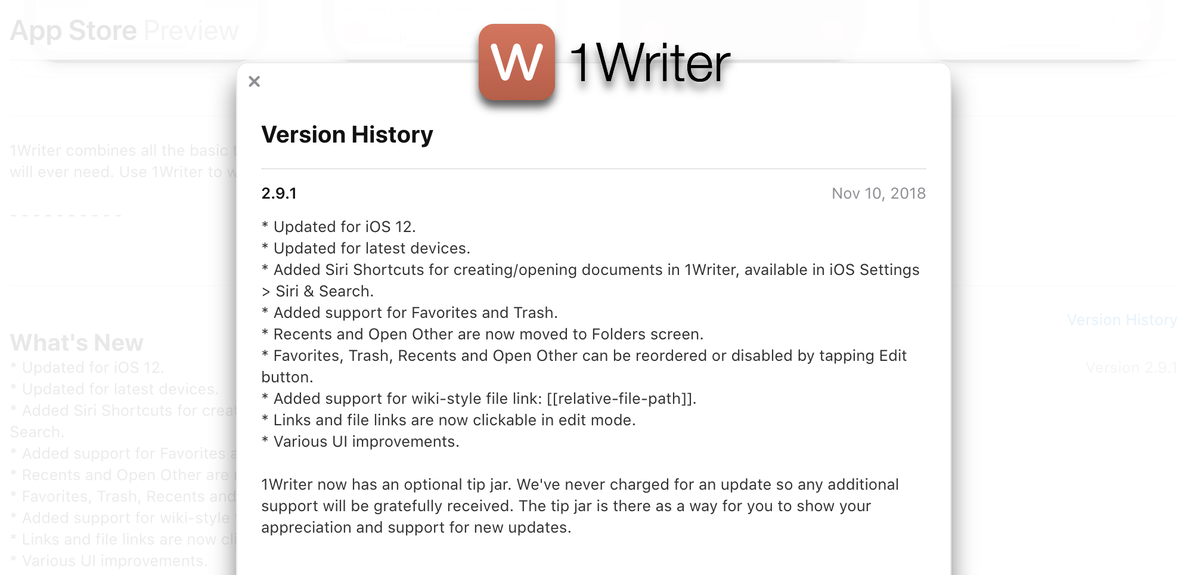
When people ask me, “Christian, what’s the best Zettelkasten Method-compatible app on iPads and iPhones?”, I always tell them about 1Writer. Its search is good. It syncs files with a ton of services. It handles #hashtags.
And now it also supports [[Wiki Links]].
That makes it an even better companion to our very own macOS app, The Archive, and the plain text productivity techniques we encourage people to use.
Sascha and Christian Talk about Structure in a Zettelkasten on MacMittwoch (German Podcast)
In the nearby town of Paderborn, there’s a community-organized meetup called “MacMittwoch” (literal translation: “MacWednesday” – guess when they meet :)). These fine folks produce a podcast, too, and their Farid Mésbahi and Gordon Möller visited Sascha and me in Bielefeld for a very nice chat. The result is Episode 15: Der Zettelkasten.
We talked about The Archive, but even more did we talk about the Zettelkasten Method in general, about emerging structure versus folder management, and why we value software agnosticism above all. Farid and Gordon are very welcoming and curious hosts, and Sascha and I are pleasant to the ear as always, of course, so you will want to listen to this episode (1h 8min; German only).
The Difference Between Good and Bad Tags

When I search in my archive for the tag #diet I get really annoying results. I don’t only get notes on diet. I get notes on carbohydrates, insulin sensitivity and many other. “Why is that a problem?”, you might ask. “All the above topics are relevant for diet, aren’t they?” No, and here is why.
The Barbell Method of Reading
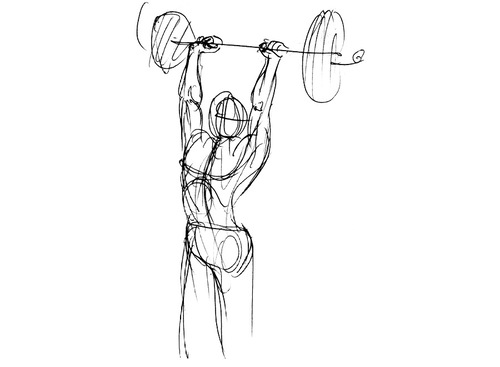
Our reading habit is one of the corner stones of our knowledge work habits. Reading is the most efficient way to create an influx of information that can transform into knowledge. Therefore, we should devote some thought and energy in the optimization of our reading habits. One decision we have to make is whether to read fast or thorough. Yes, this is a decision. There are a couple of techniques that could enhance your reading speed and don’t decrease comprehension. But most of the so-called “speed reading” techniques either decrease comprehension for the sake of speed or even involve skipping large parts of the text.
Sascha and Christian talk about All Things Zettelkasten at Der Ubercast (German Podcast)
We were invited to join Patrick Welker of rocketink.net and Andreas Zeitler aka Zettt of the German Podcast Der Ubercast to introduce our Zettelkasten Method to their audience and talk a bit about The Archive. Sascha explains a lot of the thinking behind IDs, structure, and why plain text is just the best. Thanks for having us, folks!
Listen to the episode on derubercast.com (1h 30min; German only)
A Tale of Complexity – Structural Layers in Note Taking

A Zettelkasten is neither a neatly structured filing system for notes easy to access nor a turmoil deep sea generating ideas out of the ununderstandable chaos. There are three layers in my archive which emerged from the years of working with the Zettelkasten Method. I didn’t plan them in advance. It rather was an organic process.
The Archive Has Arrived.
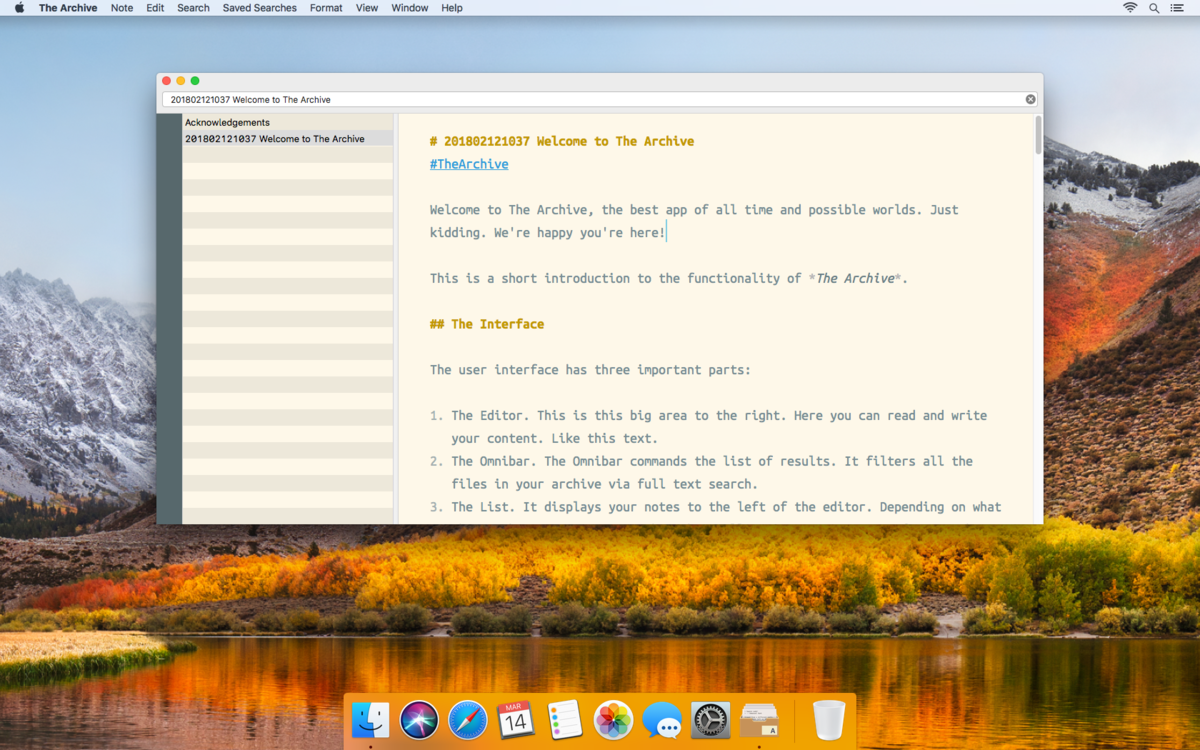
The definitive note-taking app for heroic authors and prolific writers is here.
The Archive: Available March 15th
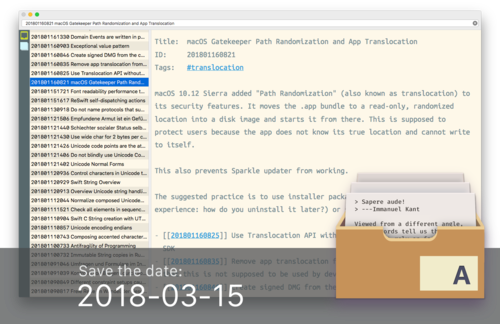
We plan to release The Archive on Thursday, March 15th, early in the day in UTC. So if you wake up anywhere in the U.S. that day and the sun is up, it should be online.
What are Buffer Notes?

A buffer note is a note that is like a specific container of notes that you will use later. They buffer the gap between note production and assignment of notes to projects. I came up with these kind of notes when I had written a couple of books but still wrote more about the same topic and was sure that I would be making a second edition.
Another Win for the Zettelkasten Method
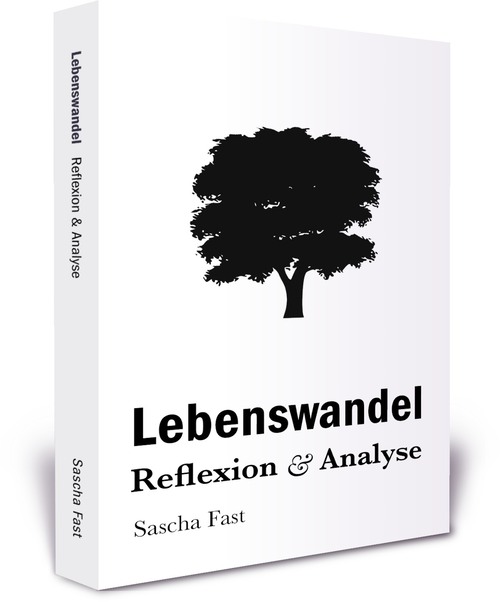
Hello dear knowledge workers, I just want to announce another win for the Zettelkasten Method. I successfully published a new book, called Lebenswandel: Reflexion und Analyse. In English, it should be translated to “Way of Living: Reflection and Analysis”. It is a very comprehensive overview on designing and thinking properly about one’s lifestyle. Here is a rough translation of the blurb: